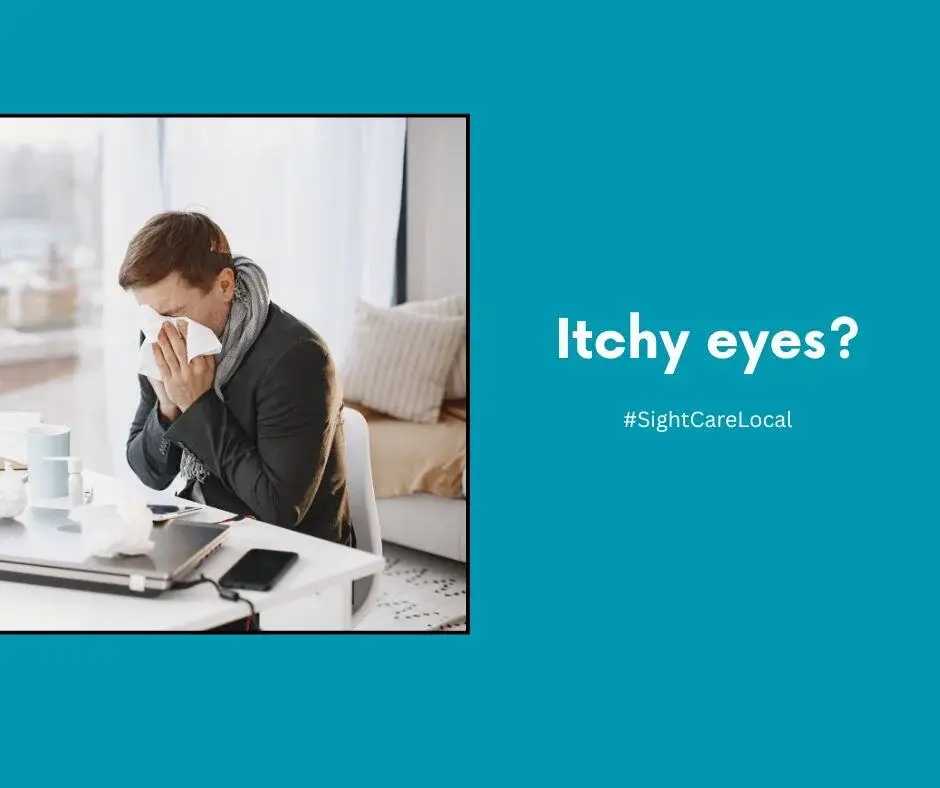Top 12 Tips for Eye Hygiene 👁️🧼Because healthy eyes start with good habits!
- abipageandsmall
- Apr 9, 2025
- 3 min read
At Page & Small Opticians, we often get asked how to keep eyes healthy between visits—and one of the most important things you can do is practice good eye hygiene. Whether you wear glasses, contact lenses, or neither, taking care of your eyes should be part of your everyday routine.
Here are our Top 12 Tips to help you keep your eyes clean, comfortable, and healthy:
1. Wash your hands before touching your eyes Simple but essential. Always wash your hands thoroughly before applying eye drops, inserting contact lenses, or rubbing your eyes.
2. Don’t rub your eyes It’s tempting, especially if they feel itchy or tired—but rubbing can introduce bacteria or cause irritation. Try using lubricating drops instead or gently rinsing with clean water.
3. Clean your makeup brushes (and avoid old makeup)If you wear eye makeup, clean your brushes regularly to prevent bacteria build-up. Most makeup products have a symbol on the packaging (a small open jar) showing how long they’re safe to use after opening—e.g., “6M” means six months. Expired mascara or eyeliner can lead to infections, so if in doubt, throw it out!
4. Remove makeup before bed (and soothe allergy eyes) Sleeping in makeup can block oil glands and irritate the delicate skin around your eyes. Use a gentle remover designed for sensitive eyes. If you suffer from hayfever or allergies, consider using soothing eye wipes or allergy-specific wipes before bed to help remove pollen and reduce irritation overnight.
5. Follow the “20-20-20” rule To avoid digital eye strain, take a break every 20 minutes, look at something 20 feet away for at least 20 seconds. Your eyes will thank you!
6. Keep your contact lens routine spotless Never skip lens cleaning, and always use the correct solution—not tap water. Follow the replacement schedule exactly and never reuse old solution.
7. Don’t share eye products or towels This includes makeup, eye drops, and face cloths. Sharing can spread bacteria or viruses that cause conjunctivitis or styes.
8. Wear protective eyewear when needed Whether you're gardening, DIY-ing, working with chemicals, or swimming—your eyes need protection. Always wear safety goggles for risky jobs, and use properly fitted swimming goggles in the pool to shield your eyes from chlorine and potential infections.
9. Clean your glasses regularly Dirty lenses don’t just affect vision—they can transfer grime and bacteria to the skin and eyes. Use lens-safe cleaning solutions and a clean cloth.
10. Book regular eye exams Even if your vision seems fine, regular eye tests help detect issues early—including conditions you may not notice yourself.
11. Eat a balanced diet for healthy eyes Your eyes rely on nutrients just like the rest of your body. Foods rich in vitamins A, C, and E, as well as omega-3 fatty acids, can help protect your vision and reduce the risk of age-related eye conditions. Think leafy greens, oily fish, colourful fruit and veg, nuts, and seeds.
12. Prioritise good sleep Tired eyes are more prone to dryness, irritation, and strain. Getting enough restful sleep gives your eyes time to recover and stay well-lubricated. It also reduces your risk of twitching eyelids, blurred vision, and digital eye fatigue.
A few small changes to your daily routine can make a big difference to your eye health. If you ever have any questions or concerns, don’t hesitate to get in touch—we’re always happy to help.
Until next time,
Abi and the team
Page & Small Opticians 👓






Comments